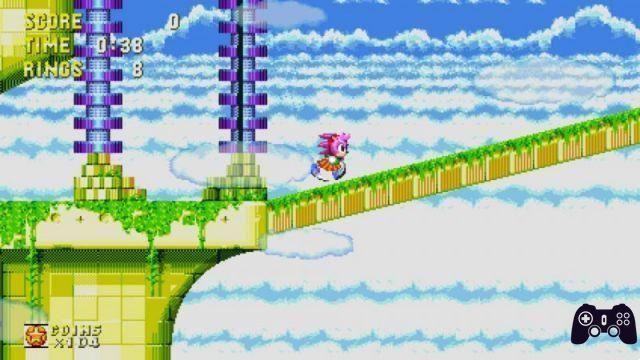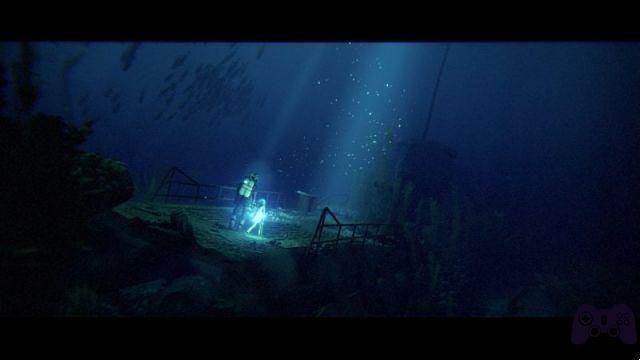Screenshots in classic pixel art style, frankly a bit derivative, can be misleading, but in the end RE: CALL review We are analyzing a truly original game, based on a little explored concept but full of potential for an investigation and puzzle adventure. As the prologue already makes clear, with an even violent clarity, in this title we can manipulate memories, acting on continuous flashbacks to test alternative versions of reality in the present, until we find the solution to the enigmas through this progressive modification of the past. The idea is really fascinating and also excellently executed for at least half of the game, then diluted a little excessively in the second part, perhaps in search of greater longevity that, however, turns out to be detrimental at a certain point.
In any case, RE:CALL remains an interesting experiment that deserves to be tried, because there are not many cases in which one is truly shocked and intrigued at this level by an original idea, even considering the variety of experiences provided by the rich indie scene.
Between teenage drama, adventures with fantastic implications and a police story with thriller influences, RE:CALL never abandons a certain ironic spirit and often winks at the player in a constant metagame that aims to break down the fourth wall, in the contents of the story as well as in game situations. This is because we are always questioned both in the progressive construction of memories and therefore of reality through our choices, and as entities with which the protagonists feel in contact, even without fully understanding it, becoming part of history.
Crimes and memories

You immediately start in the role of Dominik, a kind of gangster (or something like that) involved in an infiltration operation in the hideout of a gang of criminals and already in the first minutes you understand how this game follows different rules than the standard ones. . We are in a flashback, with the protagonist remembering the actions taken to confront his rival, but with each mistake we return to the beginning of the scene, with the possibility of making different decisions, modifying the memory and also influencing it. the situation in the present. There history then he makes a clean break and introduces us to the true protagonist, a very different character from the previous one. Bruno Gallagher is actually a scruffy and lonely boy, who has always lived on the margins of the city's richest and most elegant youth, who often make fun of him for his tendency to be overweight.
For these reasons, Bruno finds himself comfortable with quite strange and colorful characters, with whom he finds himself involved in a mysterious crime that seems related to a series of crimes that occurred in the past and, in particular, to a sad and disturbing story that has upset the old school of the protagonist.

Strengthened by the help of the "ghost" with whom he is constantly in contact and who guides his choices allowing him change memories and thus change reality, Bruno must solve the complex enigma that seems to link, in some way, the murder that occurred before his eyes, the tragedy that marked his childhood at school, the exploits of the dark Dominik and the presence of the mysterious "ghost" that appeared. suddenly in his life. Given an extremely simple staging, reminiscent of the style of 16-bit adventures, the narrative develops mainly through dialogues and close-ups of the character portraits, with good quality writing, although completely in english, all accompanied by an excellent original soundtrack.
The manipulation of reality

Il game It focuses largely on the mechanism of manipulation of memories, which consequently modify the reality that surrounds the protagonists. The system usually involves a flashback in which the protagonist remembers what happened previously, but with the possibility of making different decisions from time to time, which intertwine and influence each other until finding the correct path and the solution to the enigmas posed by reality. contemporary. These are not wide ranges of choice but rather crossroads or little more, based on a pre-established interaction on a few objects, but the combination of these determines different ramifications that can have numerous different effects, which often have to be experienced in depth. to get it. I began to see the solution to the puzzles. It is certainly a system that is easier to demonstrate than to explain, and the initial prologue probably represents the best possible introduction to this mechanism, immediately launching us into this tangle of possibilities.
The seven chapters that make up the story follow an excellent narrative progression and it is easy to get caught up in the story thanks to the strangeness of the events and twists present, although it is not exactly a very complex plot.

The characters, although based on fairly classic tropes, are well characterized and easily encourage identification. The main problem with RE:CALL is rather the game pace and the way in which the excellent basic idea on which much of the gameplay is structured tends to be diluted until it is lost in the last chapters, leaving room for less inspired puzzles and stealth sections. It's true that continuing to rely on the memory manipulation mechanics might have seemed too artificial at some point, but a better balance from start to finish would have been desirable.
Conclusions
Tested version Xbox Series X digital delivery Steam, Xbox Store, Nintendo eShop Price 17,49 € Holygamerz.com 7.5 audience ND your voteRE:CALL presents us with narrative experimentation that manages to be original and surprising, something that is not easy in the rich panorama of experiences that the current indie scene offers. Although it involves a fairly limited number of possibilities and combinations, the idea of manipulating memories manages to immediately amaze and even excite. The story and the characters then prove worthy of this conceptual freshness, prompting us to continue even in moments when things become stranger and less understandable. It's a shame that this initial push tends to fade into a more tiring and less meaningful second half of the game, but overall it's still a recommended experience for anyone who wants to try something new, albeit not very complex, like puzzles and challenges.
PRO
- The idea of manipulating reality through memories is brilliant and well reproduced
- At its best, RE:CALL offers some really well-crafted puzzles.
- The story with investigative implications and suspense is interesting.
AGAINST
- The second part drops in intensity and interest in the gaming field
- Outside of the memory-focused puzzles, the other elements of the game don't stand out






